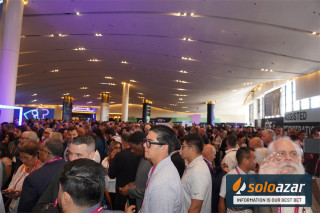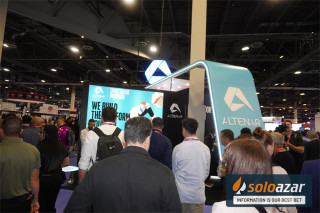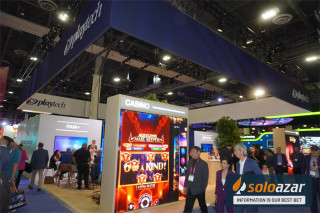From banned gambling to the regulation of online sports betting: Everything you ever wanted to know about the history of gambling in Brazil
Segunda-feira 28 de Julho 2025 / 12:00
2 minutos de lectura
(Brasília, SoloAzar Exclusive).- Brazilians no longer need to resort to foreign platforms to gamble legally. On 1 January 2025, Law No. 14.790/2023 came into force, regulating fixed-odds betting, which means that sports betting and online casino games are now legal. But how did we get here? In this article, we review the key milestones on the road to legalisation. The ban: Decree-Law 9.215/46.

This Law No. 14.790/2023 regulation, represents a historic milestone in the country, as gambling had been banned for approximately 70 years.
The ban: Decree-Law 9.215/46.
In 1946, then-President Eurico Gaspar Dutra signed Decree-Law 9.215, which prohibited the practice and operation of gambling throughout the country. The justification was based on moral and religious grounds, leading to the closure of historic casinos, job losses and a decline in tourism revenue in Brazil.
This ban also led to a decline in tax collection, harming the Federal Union, the states, and the municipalities. Furthermore, clandestine activity continued to exist, as it does today, according to police statements and the media.
Lotteries, Jogo do Bicho, and other informal practices
The popular lottery ‘Jogo do Bicho’ is one of the most representative examples: it emerged in 1892 in a zoo in Rio de Janeiro as a way to attract visitors and became the most popular illegal lottery in the country. Despite being banned, it has survived more than 30 governments, from dictatorships to democracies, and generates millions annually. It is estimated that in 2014 it raised between 1.3 and 2.8 billion reais. Other products, such as scratch cards and electronic bingo, have also gained ground over the decades.
The exception to the rule has always been federal lotteries, which have been legally authorised since 1917 and are managed by Caixa Econômica Federal. Over time, some states and municipalities have also started to operate their own lotteries, following a 2020 STF decision that allowed for this decentralisation.
What is legalised in Brazil today?
With the advancement of technology and the growth of the digital market, Brazilians began to access international sports betting and casino gaming sites. This demand pressured Congress to take action with laws and regulations within the sector, through different governments.
Online sports betting: In 2018, under Michel Temer's government, the National Congress passed Law 13,756, which authorised fixed-odds betting on sporting events (so-called bets). However, the law was not regulated during the following administration, led by Jair Bolsonaro (2019–2022), which kept the market in a grey area for several years. It was not until the end of 2023, during the current administration of Luiz Inácio Lula da Silva, that Law 14.790 was passed, establishing a comprehensive regulatory framework for online sports betting. Since 1 January 2025, the operation of platforms in Brazil requires official authorisation from the Ministry of Finance, as well as headquarters and administration in the country, tax compliance and integrity obligations. The entry into force of this law marks a historic turning point in a country that, for more than 70 years, kept gambling officially banned.
Online casinos: Starting in 2019, online casinos began operating in Brazil through foreign websites, taking advantage of legal loopholes. For a time, their operation remained in a grey area. Finally, Law 14.790/2023 brought them into the legal framework, requiring operating companies to have their headquarters and administration in the country and to be subject to the rules of the Ministry of Finance. In 2024, popular games such as Tigrinho and Aviãozinho were enabled on these platforms.
Other types of gambling: The legalisation and expansion of other forms of gambling, such as physical casinos, bingo, jogo do bicho and horse racing, is covered by Bill 2.234/2022. This bill has yet to be voted on by the full Senate, which is expected to happen in 2025.
Horse racing: This activity has specific legislation. Law 7,291 of 1984 establishes that betting on horse racing is only permitted when the funds are used to promote and supervise horse breeding, under the supervision of the National Horse Breeding Coordinating Commission (CCCCN). Therefore, betting can only be carried out at racecourses, at the headquarters or sub-headquarters of turf entities, or through accredited agents.
What about physical casinos and other games of chance?
Although Bill 2.234/2022—which proposes authorising casinos in resorts, bingo halls, jogo do bicho and horse racing betting—was approved by the Senate's Constitution and Justice Committee (CCJ) in June 2024, its vote in plenary has been repeatedly postponed. In July 2025, Senate President Davi Alcolumbre again suspended the vote, citing a lack of quorum (only 56 of 81 senators present) and requests from several legislators to remove the bill from the agenda . Despite the support of Tourism Minister Celso Sabino, who expected approval in the first half of 2025, the bill still has no new date set.
The bill contemplates the installation of casinos in integrated resorts and high-end hotels, with limits per state (for example, up to three in São Paulo and two in Minas Gerais, Rio de Janeiro, Amazonas, and Pará); licensed bingo halls, video bingo, and slot machines with auditing; and horse racing betting through official accreditation. It also provides for the creation of taxes such as the Taxa de Fiscalização de Jogos e Apostas (Tafija) and the Cide-Jogos, as well as regulations for oversight, consumer protection, and anti-money laundering measures.
Categoría:Exclusive
Tags: Sin tags
País: Brasil
Región: Sudamérica
Eventos
G2E - Las Vegas 2025
06 de Outubro 2025
CT Interactive: Inovação, Networking e Crescimento de Mercado na G2E 2025
(Las Vegas, Exclusivo SoloAzar).- A indústria global de jogos celebrou o 25º aniversário da G2E com um grande evento em Las Vegas. A CT Interactive se destacou por seu desenvolvimento inovador de produtos e sua estratégia de crescimento internacional. O executivo de contas da empresa, Roberto Muñoz, compartilhou sua visão sobre a importância da G2E, as tendências emergentes e os esforços colaborativos de expansão da companhia.
Atlaslive explorou o futuro do jogo na América Latina na recente G2E 2025
(Las Vegas, Exclusivo SoloAzar).- Bruno Almeida, diretor de vendas para a América Latina da Atlaslive, participou pela primeira vez da G2E para explorar como os jogos presenciais e online estão convergindo. Sua experiência destacou as principais tendências que moldam o mercado latino-americano, desde inovações em cassinos imersivos até redes estratégicas e perspectivas regulatórias.
G2E 2025: Cristian Galarza, diretor da ASAP, explica a importância de ter participado do evento
(Las Vegas, Exclusivo SoloAzar).- Após sua participação na 25ª edição da G2E em Las Vegas, o diretor da ASAP compartilhou sua visão sobre a evolução do setor, marcada pela digitalização, eficiência e criação de redes internacionais que impulsionam novas oportunidades de negócios.
SUSCRIBIRSE
Para suscribirse a nuestro newsletter, complete sus datos
Reciba todo el contenido más reciente en su correo electrónico varias veces al mes.











